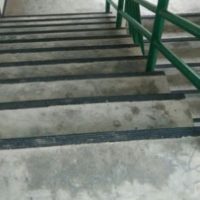How Quickly Should Property Owners Address Fall Hazards in New Hampshire?

Everyone can agree that property owners should take action when they notice fall hazards on their premises. The real question is how quickly they should act. How much of a delay is acceptable? Is any delay acceptable? These are questions injured plaintiffs often ask after they slip, trip, and fall due to hazards on someone else’s property. It is also a question that often comes up during personal injury lawsuits that stem from these injuries. The answers might be more complex than expected.
The Definition of a “Reasonable Amount of Time”
Generally speaking, a property owner is expected to address fall hazards “within a reasonable amount of time” after they notice these issues. So how exactly do we define “reasonable?” Ultimately, this word is somewhat subjective and open to interpretation. The court may determine what is considered “reasonable” on a case-by-case basis, and each case is different. Various unique factors may impede a property owner from taking action, while other factors might make it easier for them to address the hazards.
With that being said, a property owner is generally expected to take action as soon as possible after noticing a fall hazard. For example, a grocery store manager might notice a liquid spill on the floor. Their very next step should be to instruct a staff member to clean up the spill. They might also place a “wet floor” sign in the immediate vicinity of the spill to warn customers of the danger. Alternatively, they could immediately grab a mop and clean up the spill themselves. All of these actions should not involve unreasonable delays. Ultimately, the determination of “reasonable” or “unreasonable” delay in any given case is one for our New Hampshire juries.
New Hampshire Has Not Adopted the “Ongoing Storm Rule”
Many states follow a doctrine known as the “storm in progress” or “ongoing storm” rule. This states that if a snowstorm is currently in progress, a property owner is allowed to wait until its cessation before cleaning away ice, snow, and related hazards from publicly accessible pathways or parking lots. If a victim slips in a parking lot and a storm is in progress, then they cannot hold the property owner liable under this doctrine. A storm is generally said to be in progress if precipitation is present.
New Hampshire has not adopted this doctrine. This means that property owners have a legal duty to clear away ice and snow even while the storm is in progress. It doesn’t matter whether there is a serious blizzard sweeping through the parking lot – they may still still be held liable for not addressing walking hazards immediately and without unreasonable delay. However, timing is not the only measure of whether liability exists when it comes to the clearing of snow and ice under New Hampshire law. There are other concerns with snow and ice removal, such as “snowplow immunity” that are discussed in other blogs on our website.
Where Can I Find a Qualified, Experienced Personal Injury Attorney in New Hampshire?
If you’ve been searching for a qualified, experienced Manchester personal injury attorney, look no further than the Law Office of Manning Zimmerman & Oliveira PLLC. Over the years, we have helped numerous injured plaintiffs in New Hampshire – including fall victims. We know that these injuries may leave you with life-altering ailments, disabilities, and trauma. With our assistance, you can pursue legal action and compensation in the most efficient way possible. Book your consultation today.
Sources:
insurancejournal.com/news/east/2023/07/06/728871.htm
safetybuyer.com/blog/what-is-the-proper-placement-of-wet-floor-signs.html#:~:text=You%20must%20place%20signs%20prominently,where%20they%20cannot%20be%20missed.

